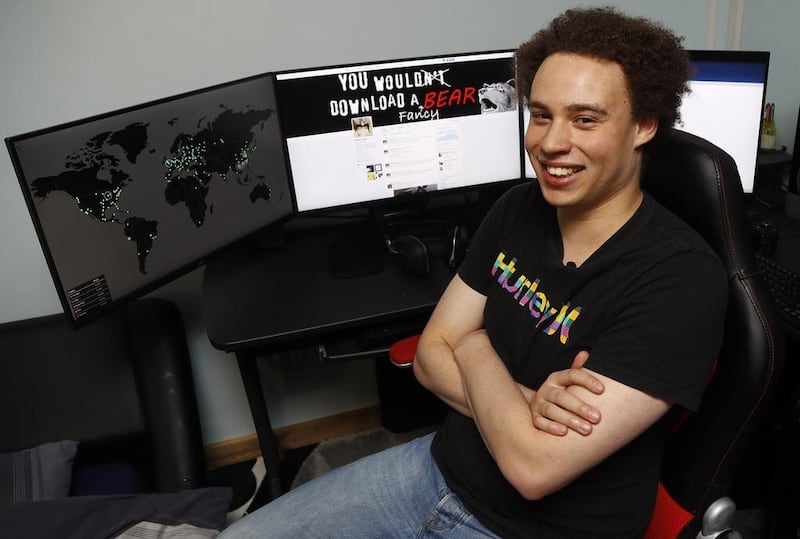ILFRACOMBE, ENGLAND // As a vast “ransomware” attack raced from computer to computer, infecting tens of thousands around the world, a young tech expert worked from his bedroom in England to bring the rampage to a halt.
But Marcus Hutchins doesn’t consider himself a hero.
The 22-year-old – credited with cracking the WannaCry cyberattack – said he fights malware because “it’s the right thing to do”.
Mr Hutchins, who works for Los Angeles-based Kryptos Logic, said on Monday that hundreds of computer experts worked throughout the weekend to fight the virus, which paralysed computers in some 150 countries.
“I’m definitely not a hero,” he said. “I’m just someone doing my bit to stop botnets.”
In the first hours after the virus struck on Friday, the computer whiz and surfing enthusiast who lives with his family in a small seaside town in south-west England discovered a so-called “kill switch” that slowed the unprecedented outbreak. He spent the next three days fighting the worm that crippled Britain’s hospital network as well as factories, government agencies, banks and other businesses around the world.
WannaCry paralysed computers running mostly older versions of Microsoft Windows by encrypting users’ computer files and displaying a message demanding a ransom of $300 to $600 (Dh1,100 to Dh2,200) to release them; failure to pay would leave the data mangled and likely beyond repair.
Kryptos Logic chief executive Salim Neino said Mr Hutchins’ quick work allowed him to slow the virus on Friday afternoon European time, before it could fully affect the United States.
“Marcus, with the programme he runs at Kryptos Logic, not only saved the United States but also prevented further damage to the rest of the world,” Mr Neino said. Kryptos Logic is one of hundreds of companies working to combat online threats for companies, government agencies and individuals around the world.
Mr Hutchins himself is part of a global community that constantly watches for attacks and works to thwart them, often sharing information on Twitter.
It’s not uncommon for members to use aliases, to protect from retaliatory attacks and ensure privacy, and Mr Hutchins has long tweeted under the handle MalwareTech.
But he realises his newfound fame will mean an end to the anonymity.
“I don’t think I’m ever going back to the MalwareTech that everyone knew,” said the curly-haired young man, shrugging and flashing a winning smile.
* Associated Press





